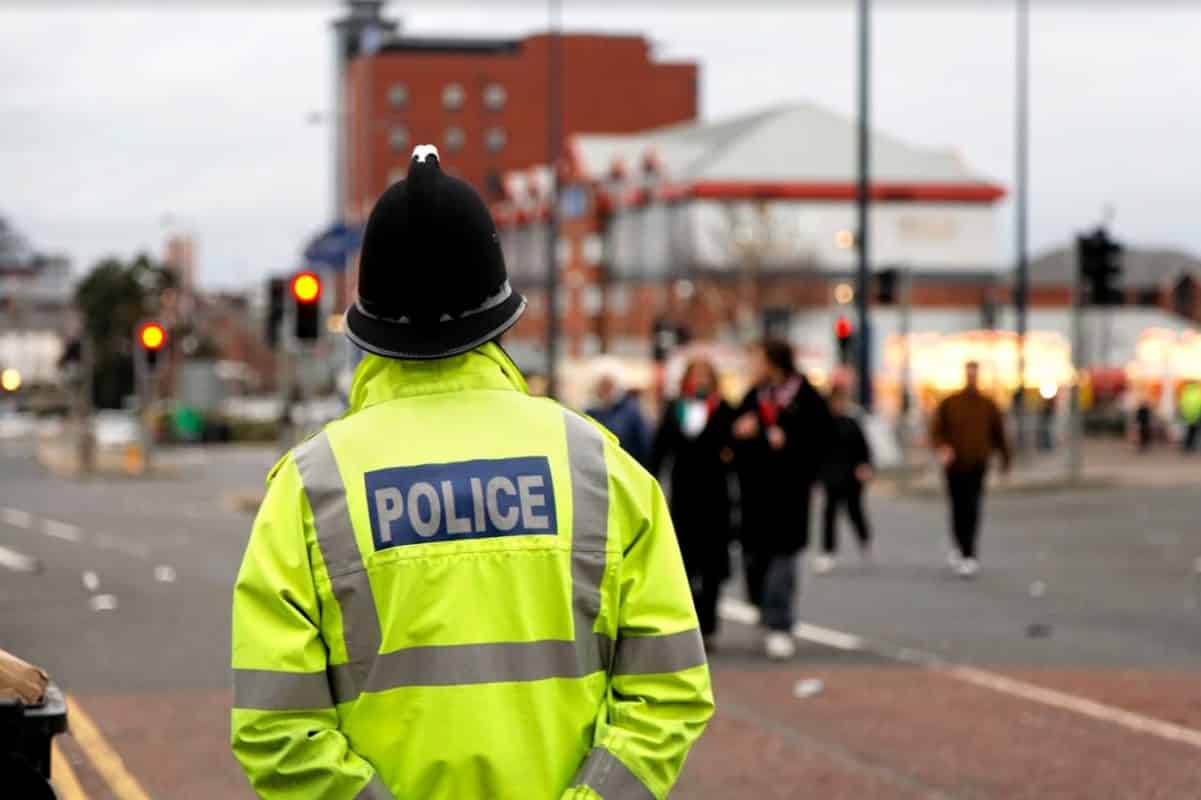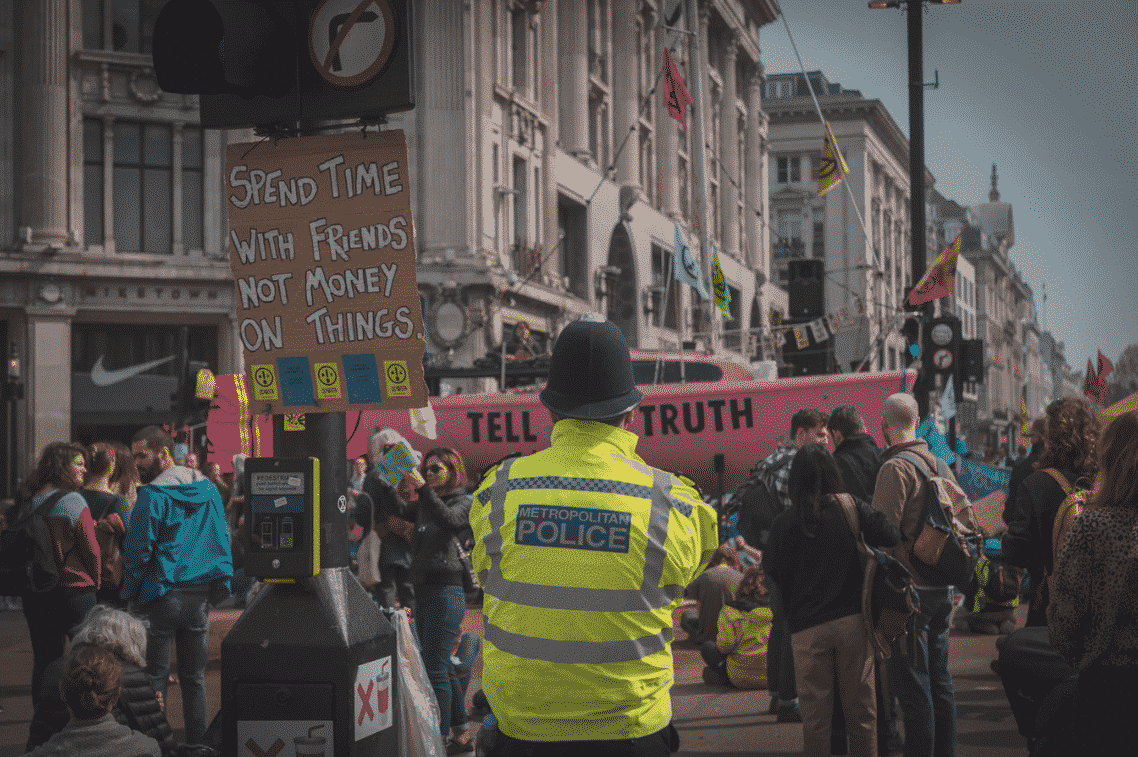During the police assessment centre, you will need to take part in what is known as a verbal reasoning exercise. The police verbal reasoning test is designed to assess your attention to detail, and your ability to decipher key information from large amounts of data. This is a crucial skill for any police officer to have, and therefore it’s very important that you can ace the test.
In this blog, we’ll give you some key police verbal reasoning test examples, and show you what the real police verbal reasoning test involves.
Police Verbal Reasoning Test Examples: Format Info
Usually, the format of the police verbal reasoning test consists of true, false or impossible to say questions. These questions take the following format:
You’ll be presented with a passage, which you will need to read. Following this, you’ll be given a series of statements. Your task is to identify whether each statement is true, false or impossible to say based ONLY on the information in the passage. Below we’ve laid out the criteria for each of these:
True. A statement can only be identified as true if said statement is directly confirmed by the passage. You must not make assumptions, or answer based on knowledge outside of the passage. So, if one of the statements said, ‘The sky is blue’, and the passage makes no reference to the sky being blue, then you cannot answer with true.
There is very little room for interpretation with these questions, although you will be expected to make logical conclusions. For example, if the passage states ‘There was only one man in the building when it exploded – Harry Jones’, and the statement said, ‘Daniel Beasley was not in the building when it exploded’, then your answer would be true – as the passage confirms this, albeit without stating that Daniel Beasley wasn’t in the building.
False. In the same way, a statement can only be identified as false if said statement is directly contradicted by the passage. Again, you must not answer based on knowledge outside of the passage, or make assumptions.
Impossible To Say. A statement is deemed impossible to say, if it does meet any of the above criteria for true or false. So, if the statement cannot be verified as true, nor as false, then it would be impossible to say. For example, if the statement said, ‘The sky is blue’ and the passage made no reference to the colour of the sky, then this statement would be impossible to say. Likewise, if there is no clear evidence that connotes the statement as being true or false, then the answer is impossible to say. For example, if the passage said, ‘A member of the Robertson family was at the scene of the crime’ and the statement said, ‘Mark Robertson was at the scene of the crime’, then this would be impossible to say, as we do not know definitively that it was Mark Robertson who attended.
Police Verbal Reasoning Test Examples
Sample Passage
At 10:49 am, Bertie Johnson stepped off the plane. It was a Boeing 747, small and private with hand-painted flames on the wings. Bertie was a rich man. He could afford private planes and linen blue suits and champagne on ice. He could afford the midnight-black convertible waiting for him on the runway of the airport, being driven by his own personal chauffeur. But Bertie had pushed his luck too far. Now, somebody else was waiting for him.
High up in the ventilation system of the departure lounge, the man watching Bertie bent down and spoke into his wrist microphone:
‘Target acquired.’
Now, answer the following questions with true, false or impossible to say, based on what you read.
Question 1: Bertie was wearing a blue suit.
Question 2: Bertie stepped off the plane at 49 minutes past 10 in the evening.
Question 3: Bertie has his own personal chauffeur.
Question 4: Bertie owns a red convertible.
Question 5: The man watching Bertie is hiding in the runway booth at the airport.
Leave your answers in the common section below, and we’ll mark you!

Variations On This Type Of Question
Occasionally, you might see variations on this type of question. In some verbal reasoning tests, you’ll be given an extended passage, and will then be given a series of statements. Your task will be to identify which ONE of the statements is true, or which ONE of the statements is false. Again, you should use the criteria mentioned previously to work this out.
Sample Passage
It was a cold, clear morning in the middle of October, when Michael Johnson first stepped through the doors of Finemans International. He was wearing a dark suit, black brogues with zebra explosions on the toes, and carrying a black briefcase. His socks were decorated with tiny pianos.
There were two men on the desk that day, Chief of Security Griggs, and HR assistant Edward Darling. They looked up as Michael approached.
‘State your name and your business,’ said Griggs.
Michael smiled politely. ‘I’m here to see Mr Badgely.’
Darling frowned. ‘Do you have an appointment?’
Michael put his hand in his jacket. He handed Darling an appointment card.
‘Okay thanks. Put your briefcase on the scanner, and no funny business.’
Michael lifted the briefcase and swung it down onto the electronic scanner. There was a sharp click from the machine, and then the briefcase was pulled down the automatic assembly line. Michael watched, and waited, as it shunted slowly down the assembly line, at a snail’s pace, before filtering into the scanning machine.
‘Stop,’ Griggs said, to nobody in particular. He paused the machine and looked at Michael.
‘Is there a problem?’ Michael asked.
Griggs gestured to Michael’s front pocket. ‘I need your phone too.’
‘Why?’
‘Security. Now hand it over.’
Michael frowned. He took his phone out and placed it carefully on the scanning tray. A few moments later, both the briefcase and the phone reappeared. Griggs grunted.
‘Okay, you can go through. Take your stuff with you.’
Darling smiled, ‘Good luck in your interview.’
Michael collected his briefcase from the end of the assembly line. He walked through the double glass doors that led from the lobby into the main area of the bank. There was a bathroom on the left-hand side – a single cubicle. Michael went in and locked the door behind him. He sat on the toilet and rested the briefcase on his knees.
The briefcase was made of pigskin leather. Inside the briefcase was a single, hardback book, with two hundred and twenty-four pages exactly. But this book was much wider than your standard paperback. And if Darling had opened the large book to page one hundred and ten, he would have got quite a shock. But of course, Griggs had made sure that wouldn’t happen. And he’d taken care of the machine too. It was imperative not to ruin the surprise. After all, what better place to hide a clown costume? Mr Badgely would never forget this birthday!
Identify which of the below statements is TRUE:
- Michael Johnson is 24 years old.
- Darling was in on the plot to surprise Mr Badgely.
- The clown costume was hidden on page 210 of the book.
- Michael Johnson was wearing black brogues
- Mr Badgely was getting married today.
Leave your answer in the comments section below, and we’ll mark you! We hope you’ve found these police verbal reasoning test examples useful!
Want To Practise More Police Verbal Reasoning Tests?
If you’re looking for further tips on how to ace the police officer selection process, and join the UK’s most elite organisation, then we’ve got the ideal product for you. Our police officer course is run by a former MET police recruitment officer, and takes place right here in Kings Hill, Kent!



1. impossible to say
2. True
3. impossible to say
4. false
5. impossible to say
Hi there,
Unfortunately you only scored 1 correct answer out of 5. Have another go and see how you get on!
Sincerely,
The How2Become
1. false
2. false
3. false
4. false
5. false
Hi there.
Unfortunately this is still not correct. Have another go!
Sincerely,
The How2Become Team
1 False
2 False
3 True
4 False
5 Imposible to say
Hi there,
This is a great attempt, but unfortunately not all correct. Have another try and let us know your answers!
Sincerely,
The How2Become Team
1. Impossible to say
2.False
3.True
4.Impossible to say
5. False
Great answers! Well done Johann 🙂
1. Impossible to say
2. False
3. True
4. Impossible to say
5. False
Hi Victoria,
Great job – you got all five correct! You’re so good at this, that you should apply for the police service! If you need any help then just let us know.
Sincerely,
The How2Become Team
1. Impossible to say
2. False
3. True
4. Impossible to say
5. False
Hi Karen,
Great job, you got them all correct! Have a go at the second exercise and see how you get on!
Sincerely,
The How2Become Team
1.Impossible to say
2. False
3. True
4.Impossible to say
5. True
Hi Renea, thanks for answering! Questions 1, 2, 3 and 4 are all correct, well done!
A. Impossible to say
B. False
C. True
D. Impossible to say
E. False
Hi Jaime!
Thanks for answering.
All correct, well done!
You can practice more questions like this in our excellent Police Tests workbook.
second set of questions
A impossible to day
B false
C False
D True
E false
Thanks for answering Emma 🙂
You’ve done great here, but just take another look at question 5.
Impossible to say
False
True
Impossible to say
False
Great answers Daniel, well done 🙂
Revised:
1. Impossible to say (he only says he can afford)
2. False (incorrect time)
3. True (driven by his own personal chauffeur)
4. False (the car is midnight-black)
5. False (departure lounge)
Hi Maya, you got questions 1, 2, 3 and 5 correct 🙂
Impossible to say
False
True
Impossible to say
False
5 out of 5 correct, fantastic answers Salma 🙂
Variations Passage 2 – Martin Johnson
1 – Impossible to say
2 False
3 False
4 True
5 Impossible to say
Great answers Sue! You got all of these correct 🙂
passage 1
1. Impossible to say (he could afford…doesn’t mean he was wearing it)
2. False (wrong time as its AM not PM)
3. True
4. Impossible to say
5. False
Passage 2
1. Impossible to say
2. False (if Darling ..shock)
3. False (if Darling had open page 110…)
4. True
5. False (Mr.Bradley would never forget this Birthday)
Thanks for answering Yeni 🙂
Passage 1 – all correct
Passage 2 – all correct except question 5
Well done!
impossible to say- not specified
false –
false -page 110 not 210
true- was described
false- birthday not marrige
Hi Isobel, thanks for answering! You got questions 1, 2, 3 and 4 right 🙂 well done!
1 Impossible to say
2 False
3 True
4 Impossible to say
5 False
For the second passage, you’ve changed from Martin Johnson to Michael Johnson… thought you should edit, and the true statement is that he has black brogues.
Hi Emma,
Well done for spotting the Martin/Michael error! I’ve fixed that 🙂
You got all of the questions right for the first passage and you’ve chosen the correct ‘true’ statement for the second passage. Well done!
1 Impossible to say
2 False
3 True
4 Impossible to say
5 False
Absolutely – great answers Madina 🙂
Extract No. 1:
1. Impossible to say
2. False
3. True
4. Impossible to say
5. False
Extract no.2:
1. Impossible to say
2. False
3. False
4. True
5. Impossible to say
You got them all right Marley, great job!
1. impossible to say
2. false
3. true
4. impossible to say
5. false
Thank you for your answer which is indeed correct!